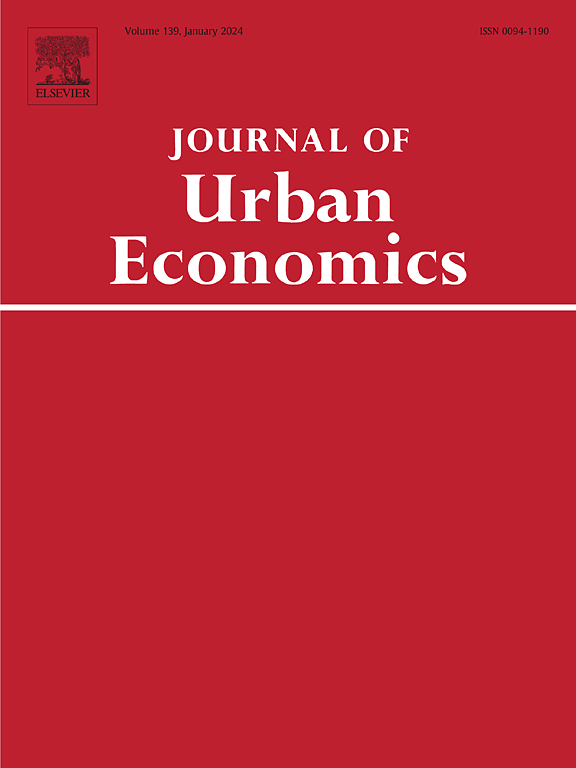Export slowdown and increasing land supply: Local government’s responses to export shocks in China
IF 4.8
1区 经济学
Q1 ECONOMICS
引用次数: 0
Abstract
Using the shift-share (Bartik) instrumental variable to solve the endogeneity problem, this study shows a robust negative effect of export shocks on residential land supply in China during 2008–2022. We attribute this effect to a novel revenue-based fiscal-consolidation measure: Chinese city governments intentionally increase urban-land-supply revenues to hedge against declining tax revenues caused by the export slowdown. The additional land-supply profits can offset approximately 94 % of the tax-revenue losses. This effect is achieved as city governments expand land supply while maintaining stable land prices to generate additional land revenue. However, we find this land-based fiscal-consolidation measure bears unintended costs: it has led to excessive urban expansion, amplified the risk of the housing market, and increased commuting costs. A one-percentage-point drop in export growth correlates with a yearly increase of 124 million USD in commuting costs caused by the land oversupply in China. Further, this measure is becoming less sustainable as its preconditions (abundant developable land and robust demand) become increasingly difficult to meet.
出口放缓与土地供应增加:中国地方政府对出口冲击的应对
利用shift-share (Bartik)工具变量解决内生性问题,本研究表明,2008-2022年期间,出口冲击对中国住宅用地供应产生了强劲的负面影响。我们将这种效应归因于一种新的基于收入的财政整顿措施:中国城市政府有意增加城市土地供应收入,以对冲出口放缓导致的税收下降。额外的土地供应利润可以抵消大约94%的税收损失。这种效果是通过城市政府扩大土地供应,同时保持稳定的土地价格以产生额外的土地收入来实现的。然而,我们发现这种以土地为基础的财政整顿措施带来了意想不到的成本:它导致了城市过度扩张,放大了房地产市场的风险,增加了通勤成本。出口增速每下降1个百分点,中国每年因土地供过于求造成的通勤成本就会增加1.24亿美元。此外,随着其先决条件(充足的可开发土地和强劲的需求)越来越难以满足,这一措施正变得越来越不可持续。
本文章由计算机程序翻译,如有差异,请以英文原文为准。
求助全文
约1分钟内获得全文
求助全文
来源期刊

Journal of Urban Economics
Multiple-
CiteScore
10.60
自引率
4.80%
发文量
64
期刊介绍:
The Journal of Urban Economics provides a focal point for the publication of research papers in the rapidly expanding field of urban economics. It publishes papers of great scholarly merit on a wide range of topics and employing a wide range of approaches to urban economics. The Journal welcomes papers that are theoretical or empirical, positive or normative. Although the Journal is not intended to be multidisciplinary, papers by noneconomists are welcome if they are of interest to economists. Brief Notes are also published if they lie within the purview of the Journal and if they contain new information, comment on published work, or new theoretical suggestions.
 求助内容:
求助内容: 应助结果提醒方式:
应助结果提醒方式:


